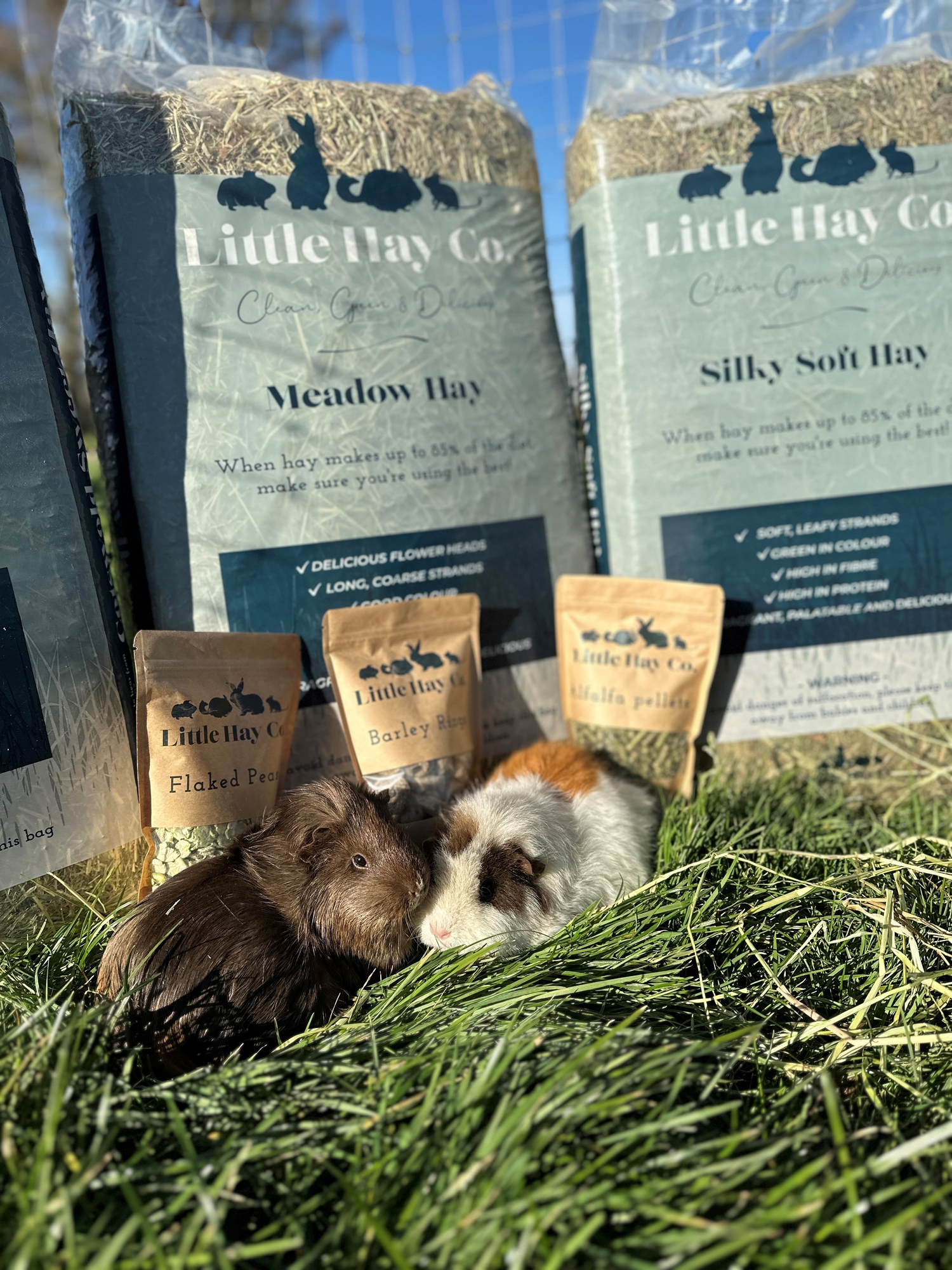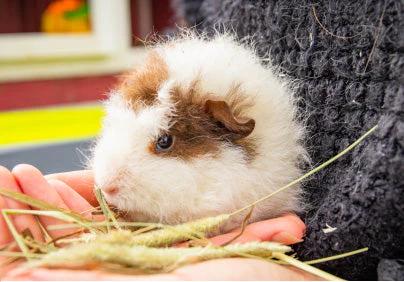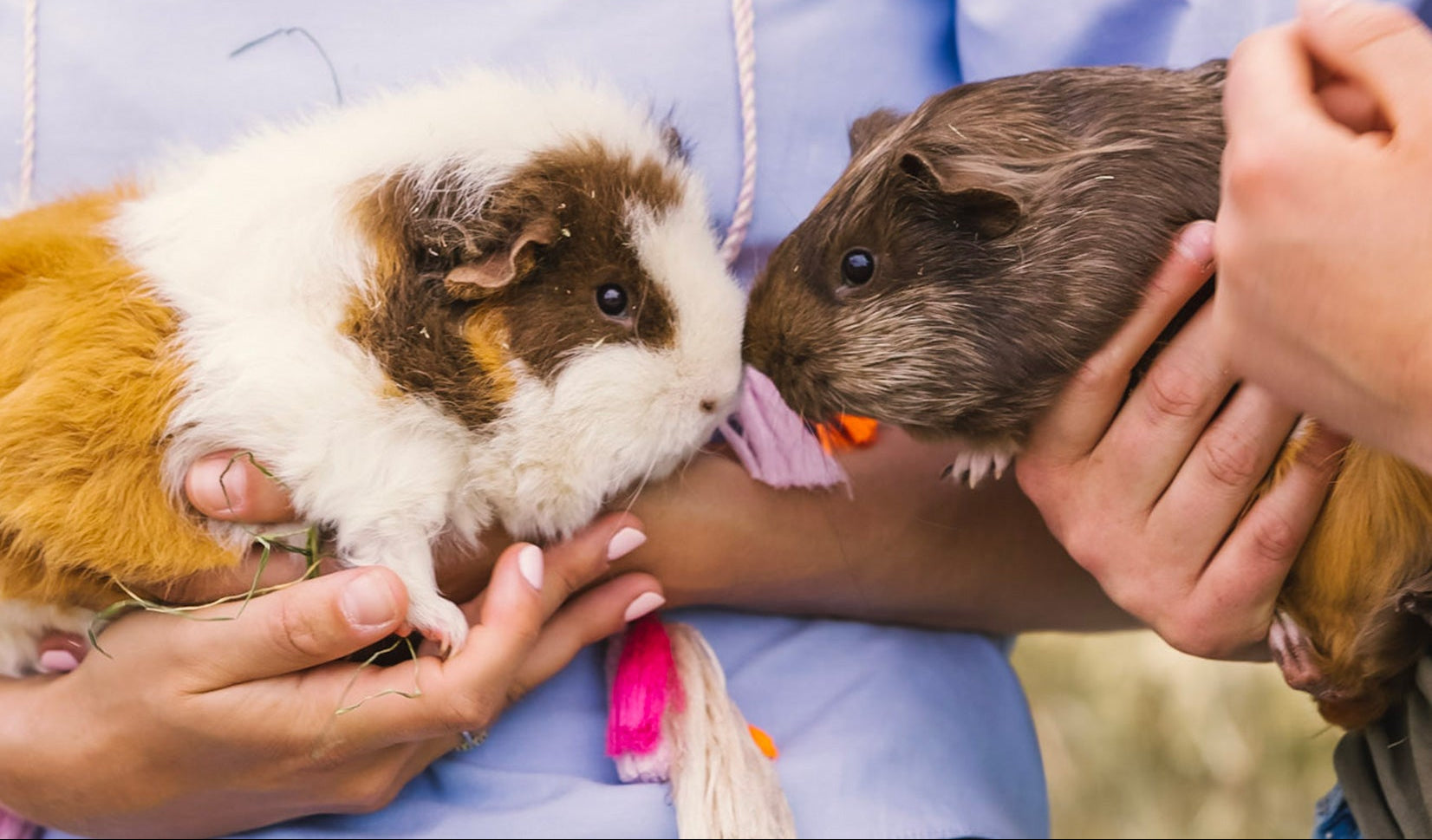When it comes to feeding your rabbits, guinea pigs and other furry herbivore friends, the quality of hay plays a crucial role in their overall health and well-being. While often we talk about Quantity or Quality being key - With Herbivores both Quanitity and Quality is important!
One important factor to consider is whether the hay has been barn dried or field dried. While both methods have their merits, barn dried hay offers several advantages that make it a superior choice.
What is barn dried hay?
Barn dried hay refers to the process of drying hay in a controlled environment, such as a barn or a hay shed. This method involves cutting the hay when it is at its peak nutritional value and then storing it in a well-ventilated space. The hay is spread out in thin layers to allow for proper air circulation, and fans or other drying equipment may be used to expedite the drying process.
Why is barn dried hay better?
1. Reduced moisture content: Barn dried hay has a lower moisture content compared to field dried hay. This is because the barn is set to peak conditions to allow a consistent dry throughout the product. It is important because excessive moisture can lead to mold and mildew growth as well as dangerous spores, which can be harmful to your pet. By drying the hay in a controlled environment, the moisture content is significantly reduced aiming for the perfect 12% moisture is much easier with a barn wet up with 24 hour remote access and monitoring helping to ensure a safer and healthier feed for your animals.
2. Preservation of nutrients: Barn dried hay retains more of its nutritional value compared to field dried hay. The controlled drying process helps to preserve the hay's vitamins, minerals, and proteins, ensuring that your livestock receive the essential nutrients they need for optimal health and performance.
3. Less exposure to contaminants: Field dried hay is exposed to various environmental factors, such as rain, wind, and pests. These factors can introduce contaminants and reduce the overall quality of the hay. Barn dried hay, on the other hand, is protected from these external elements, resulting in a cleaner and safer feed for your animals.
4. Better color and texture: Barn dried hay tends to have a more vibrant color and a softer texture compared to field dried hay. Rabbits and Guinea pigs are naturally attracted to visually appealing and palatable feed, and the superior color and texture of barn dried hay can help encourage them to consume an adequate amount of hay, promoting better digestion and overall health.













